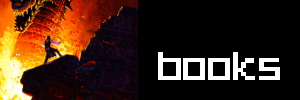These are some of my favorite comics.
NB: Some of these comics include language, art, or subject matter that's probably not appropriate for children. I'd considered trying to point those ones out based on my memory of them but realized I'd have to guess at an apporopriate age for titles such as Maus and Persepolis, for example, which children probably should read.
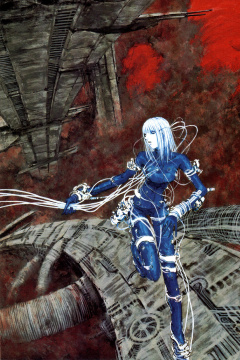
Blame!
by Tsutomu Nihei
A science fiction adventure series with few words but some intense action and an impressive sense of scale.
Robots once controlled by humans have turned a city into a megastructure filling much of the solar system. A lone cyborg wanders in search of a surviving human with the genetic marker to regain control of the system.
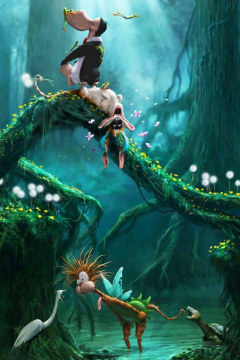
Bloom County
by Berke Breathed
I could appreciate the humor in Bloom County even when I was too young to really understand many of the references.
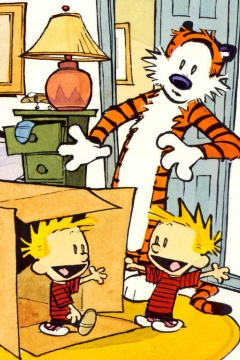
Calvin and Hobbes
by Bill Watterson
I can't tell you how many times I read the various Calvin and Hobbes collections when I was younger.
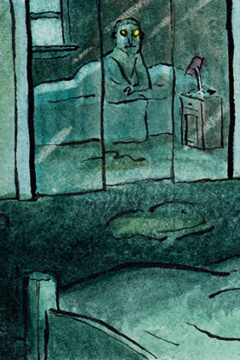
Deep Dark Fears
by Fran Krause
Readers submit their irrational fears and Krause illustrates them in comic form.
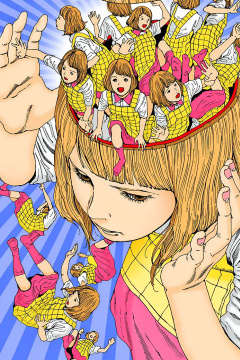
Dementia 21
by Shintarō Kago
Shintarō Kago is an exceptionally creative cartoonist but much of his work is extremely explicit. Dementia 21 is an exception and a title I can freely recommend. In it, a home health aide encounters bizarre situations.
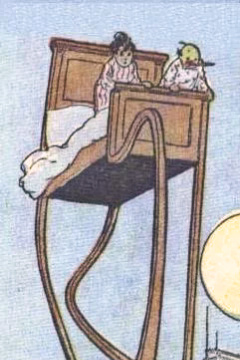
Dream of the Rarebit Fiend and
Little Nemo in Slumberland
by Winsor McCay
Two imaginative newspaper comics involving dreams. Dream of a Rarebit Fiend started in 1904 and Little Nemo spun off from it the next year.
I also have a Web log entry about Winsor McCay.
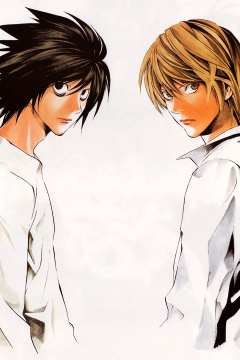
Death Note
by Tsugumi Ohba (writer) Takeshi Obata (illustrator)
A high school student finds a notebook that can be used to kill, and the story explores various implications of this.
I found the first half of this story much stronger than the second half.
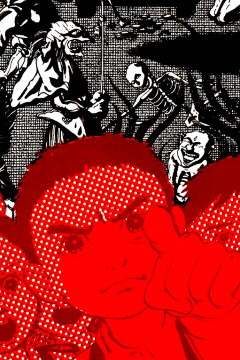
The Drifting Classroom
by Kazuo Umezu
A Japanese horror comic from the early 1970s in which an elementary school is suddenly transported to a mysterious location and the students must figure out how to survive.
"We sixth graders are the oldest ones here! So the sixth-grade boys will become the fathers and the sixth-grade girls will become the mothers!!"
Nobuhiko Obayashi directed an odd live-action movie based on this comic in 1987. (He also directed a movie based on Black Jack by Osamu Tezuka in 1977.)
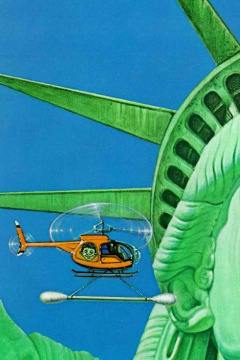
EC and
Mad Magazine
by various
This is a broad entry in this list that deserves to be expanded, but for now this will have to do.
Mad Magazine was enormously influential on me when I was young. I was lucky to find a large collection of old issues in a comic shop for next to nothing, and I read them endlessly over the years.
It was much later that I started to read some of the EC titles that came before, many of which are excellent.
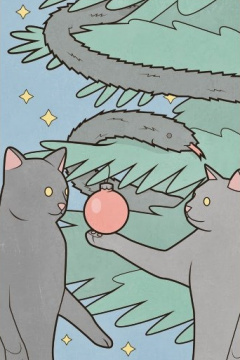
Everyday Absurdities
by Anton Gudim
I saw Anton Gudim's comics in various places on the Internet for some time before learning the creator's name. Clever jokes in the form of instructional illustrations.
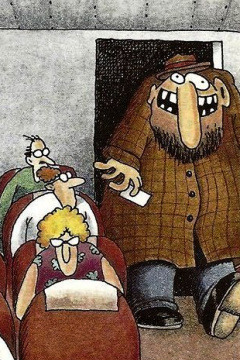
The Far Side
by Gary Larson
A long-running newspaper comic that I suppose needs no introduction. I basically grew up with this one.
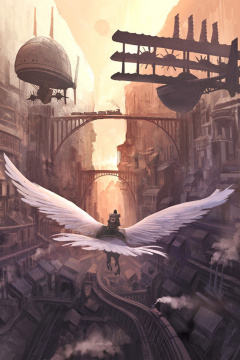
Flight
by Kazu Kibuishi, et al.
This is an anthology series featuring short stories by a wide variety of creators. Every story involves the theme of "flight" in some way.
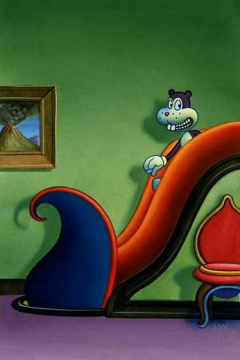
Frank
by Jim Woodring
A series of books about a "generic anthropomorph" in a surreal, wordless world. The stories strongly resemble dreams.
A good starting point is either The Frank Book or Weathercraft.
I also have a Web log entry about Jim Wooding.
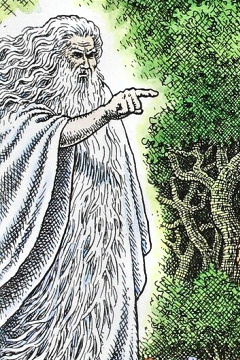
The Book of Genesis
Illustrated by Robert Crumb
Most R. Crumb comics I've seen aren't really for me, but I find his illustration of Genesis impressive and in places amusing.
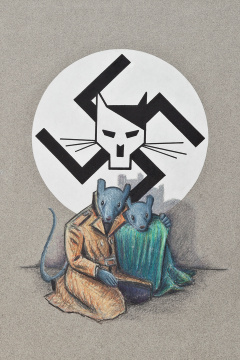
Maus
by Art Spiegelman
A biographical comic about Spiegelman's father's experiences during World War II. In depicting the Holocaust, the art substitutes animals for people.
Spiegelman also worked on Garbage Pail Kids, which were popular at the time Maus was published. (They had shifted to parody after failing to acquire a license for Cabbage Patch Kids.)
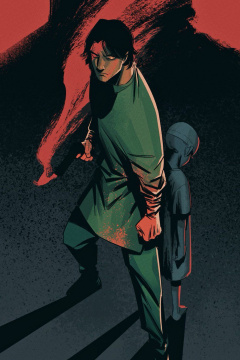
Monster
by Naoki Urasawa
A comic series about a surgeon working in a hospital who faces a series of moral dilemmas.
Although I found the ending a little weak, this remains a favorite.
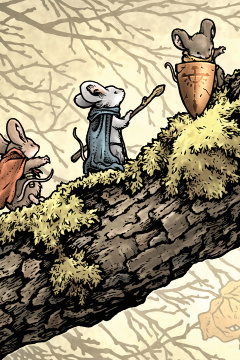
Mouse Guard
by David Petersen
The adventures of sapient mice in a medieval society. The world includes other animals but no humans.
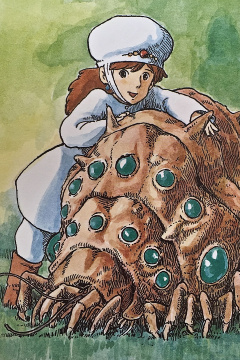
Nausicaä of the Valley of the Wind
by Hayao Miyazaki
The story of a resiliant princess attempting to improve a post-apocalyptic world.
Nausicaä is my favorite of Miyazaki's animated movies and I think the comic is even better.
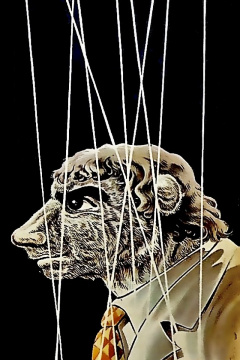
Ode to Kirihito
by Osamu Tezuka
Tezuka has many titles worth reading, but Ode to Kirihito is the one that I think about the most. A medical intern is assigned to study a disease that turns humans into a doglike form before it kills them.
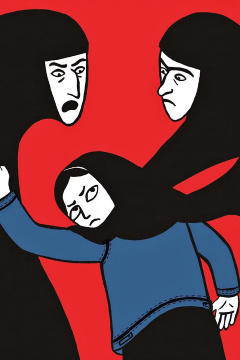
Persepolis
by Marjane Satrapi
An autobiographical comic about Satrapi's like growing up in Iran, leaving, and later returning. With a fascinating look at the cultural context.
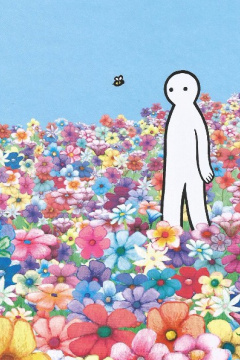
The Perry Bible Fellowship
by Nicholas Gurewitch
A clever Web comic with bright, colorful art but dark humor more often than not.
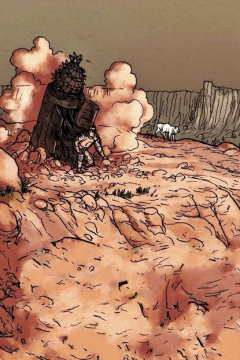
Prophet
by Brandon Graham, Simon Roy, et al.
Technically a continuation of a 1990s superhero comic, the 2012 iteration of Prophet takes place in a bizarre far-future world.
I hope this one day gets a nice hardcover edition.
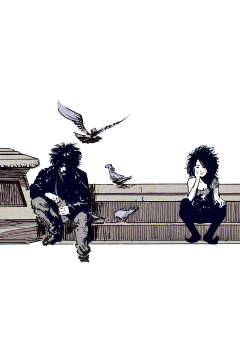
The Sandman
by Neil Gaiman
Anything related to dreams gets my attention, and this was one of my favorite comics when I was in high school. I liked some of the stories more than others, my favorites being A Season of Mists and World's End.
I think I fell in love with her, a little bit. Isn't that dumb? But it was like I knew her. Like she was my oldest, dearest friend. The kind of person you can tell anything to, no matter how bad, and they'll still love you, because they know you.
I wanted to go with her. I wanted her to notice me. And then she stopped walking. Under the moon, she stopped. And looked at us. She looked at me. Maybe she was trying to tell me something; I don't know. She probably didn't even know I was there.
But I'll always love her. All my life.
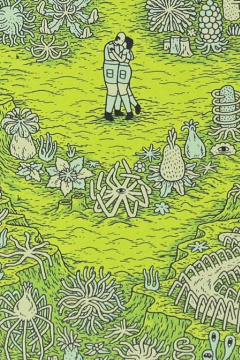
Safari Honeymoon
by Jesse Jacobs
A short, surreal comic about a couple taking a trip.
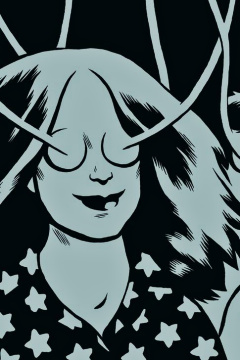
Slow Wave
by Jesse Reklaw
Slow Wave is a "collective dream diary." Reklaw condensed and illustrated dreams submitted by the public in a weekly comic strip.
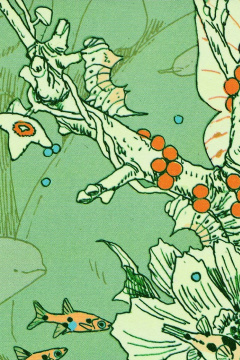
Stages of Rot
by Linnea Sterte
Not as much a story as an abstract depiction of life cycles, with some of the nicest comic art I've seen.
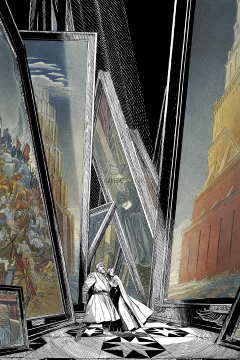
The Tower
by François Schuiten and Benoît Peeters
A worker responsible for repairs in an enormous stone tower sees no one else working anymore and descends the tower to investigate.
This is part of the Obscure Cities series (Les Cités Obscures in the original French).
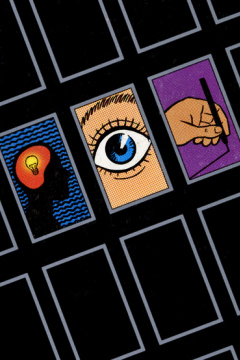
Understanding Comics
by Scott McCloud
This is an explanation of the comic form, in comic form. It's entertaining and enlightening.
McCloud followed this up with two other books.
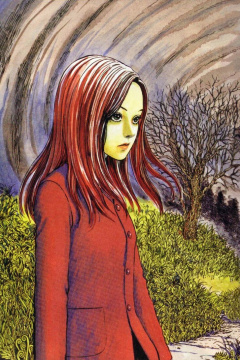
Uzumaki
by Junji Ito
Junji Ito has produced many excellent horror comics, but I think Uzumaki is his masterpiece. Mysterious spirals beset a Japanese town.
Another of my favorite Ito books is Hellstar Remina.
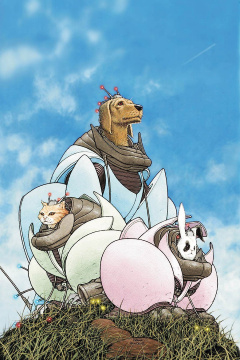
WE3
by Grant Morrison (writer) and Frank Quitely (artist)
A violent story of a dog, a cat, and a rabbit that have been enhanced in several ways as a military experiment.
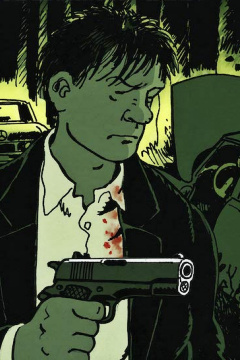
West Coast Blues
by Jean-Patrick Manchette (writer) and Jacques Tardi (artist)
A random business executive and family man happens to witness a scene that exposes him to a world of crime.
Manchette and Tardi collaborated on several other stories as well.
